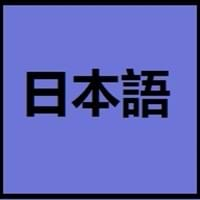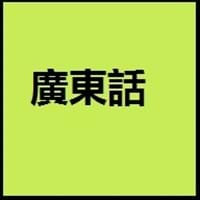Japanese vs Cantonese
Countries
Japan
Hong Kong, Macau
National Language
Japan
China, Guangdong
Second Language
Not spoken in any of the countries
Not spoken in any of the countries
Speaking Continents
Asia, Pacific
Asia
Minority Language
Palau
Hawaii
Regulated By
Agency for Cultural Affairs (文化庁) at the Ministry of Education
Civil Service Bureau, Government of Hong Kong, Official Language Division
Interesting Facts
- In Japanese Language, there are 4 different ways to address people: kun, chan, san and sama.
- There are many words in Japanese language which end with vowel letter, which determines the structure and rhythm of Japanese.
- Cantonese have lot of slangs, many of them include words that do not make sense at all and some also have English in them.
- Even though Cantonese and Mandarin are dialects of Chinese, Cantonese has 8 tones instead of Mandarin's 4.
Similar To
Korean Language
Chinese Language
Derived From
Not Available
Not Available
Alphabets in
Japanese-Alphabets.jpg#200
Cantonese-Alphabets.jpg#200
Scripts
Kana
Chinese Characters and derivatives
Writing Direction
Left-To-Right, Horizontal, Top-To-Bottom
Left-To-Right, Horizontal, Top-To-Bottom
Hello
こんにちは (Kon'nichiwa)
您好
Thank You
ありがとう (Arigatō)
谢谢
How Are You?
お元気ですか (O genki desu ka?)
你好吗?
Good Night
おやすみなさい (Oyasuminasai)
晚安
Good Evening
こんばんは (Konbanwa)
晚上好
Good Afternoon
こんにちは (Konnichiwa!)
下午好
Good Morning
おはよう (Ohayō)
早上好
Please
お願いします (Onegaishimasu)
请
Sorry
ごめんなさい (Gomen'nasai)
遗憾
I Love You
愛しています (Aishiteimasu)
我爱你
Excuse Me
すみません (Sumimasen)
原谅我
Dialect 1
Sanuki
Guangzhou
Where They Speak
Kagawa
outside mainland China
How Many People Speak
Not Available
Where They Speak
Fukuoka
Hong Kong
Dialect 3
Kansai
Hong Kong
Where They Speak
kansai
Hong Kong
Native Name
日本語
Kwang Tung Wa
Alternative Names
Not Available
Guangfu, Metropolitan Cantonese
French Name
japonais
Not Available
German Name
Japanisch
Not Available
Pronunciation
/nihoɴɡo/: [nihõŋɡo], [nihõŋŋo]
Not Available
Ethnicity
Japanese (Yamato)
Not Available
Language Family
Japonic Family
Sino-Tibetan Family
Subgroup
Not Available
Not Available
Branch
Not Available
Not Available
Early Forms
Old Japanese, Early Middle Japanese, Late Middle Japanese and Early Modern Japanese
No early forms
Standard Forms
Japanese
Standard Cantonese
Language Position
Not Available
Signed Forms
Signed Japanese
Not Available
Scope
Individual
Not Available
ISO 639 1
ja
No data available
ISO 639 2/T
jpn
Not Available
ISO 639 2/B
jpn
Not Available
ISO 639 3
jpn
No data available
ISO 639 6
Not Available
Not Available
Glottocode
nucl1643
cant1236
Linguasphere
45-CAA-a
No data available
Language Type
Living
Not Available
Language Linguistic Typology
Subject-Object-Verb
Not Available
Language Morphological Typology
Agglutinative, Synthetic
Not Available
Japanese and Cantonese Language History
Comparison of Japanese vs Cantonese language history gives us differences between origin of Japanese and Cantonese language. History of Japanese language states that this language originated in 1185 whereas history of Cantonese language states that this language originated in 17th century. Family of the language also forms a part of history of that language. More on language families of these languages can be found out on Japanese and Cantonese Language History.
Japanese and Cantonese Greetings
People around the world use different languages to interact with each other. Even if we cannot communicate fluently in any language, it will always be beneficial to know about some of the common greetings or phrases from that language. This is where Japanese and Cantonese greetings helps you to understand basic phrases in Japanese and Cantonese language. Japanese word for "Hello" is こんにちは (Kon'nichiwa) or Cantonese word for "Thank You" is 谢谢. Find more of such common Japanese Greetings and Cantonese Greetings. These greetings will help you to be more confident when conversing with natives that speak these languages.
Japanese vs Cantonese Difficulty
The Japanese vs Cantonese difficulty level basically depends on the number of Japanese Alphabets and Cantonese Alphabets. Also the number of vowels and consonants in the language plays an important role in deciding the difficulty level of that language. The important points to be considered when we compare Japanese and Cantonese are the origin, speaking countries, language family, different greetings, speaking population of these languages. Want to know in Japanese and Cantonese, which language is harder to learn? Time required to learn Japanese is 88 weeks while to learn Cantonese time required is 88 weeks.





